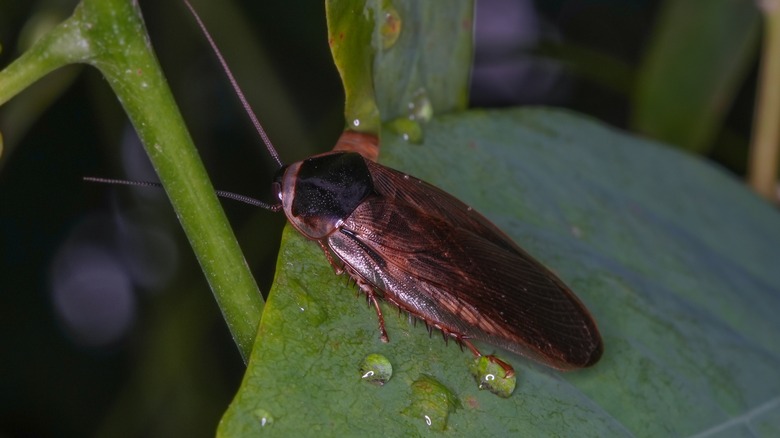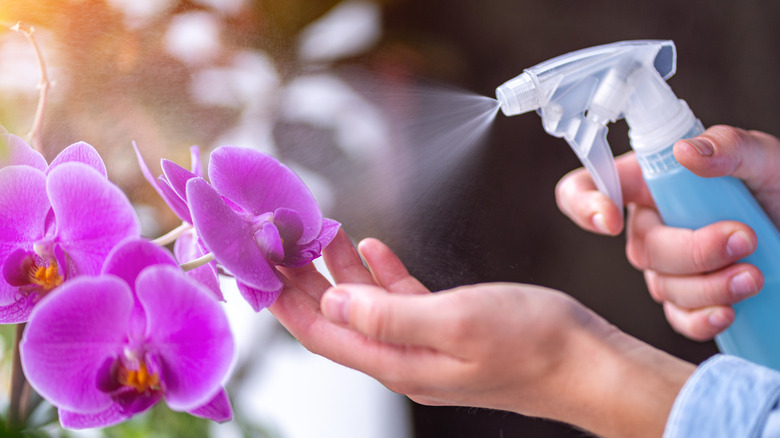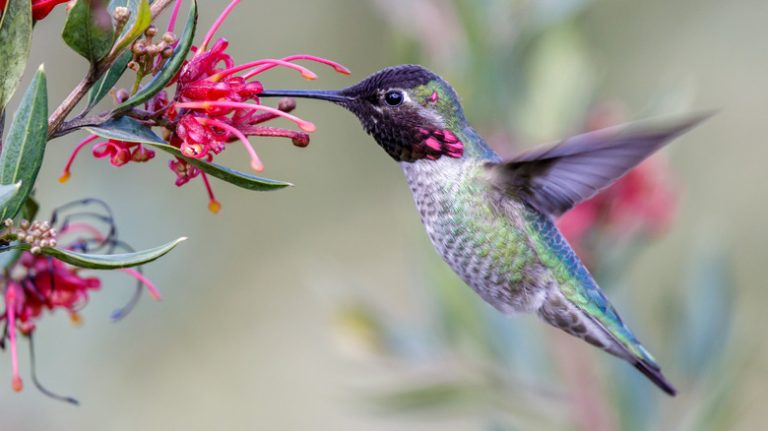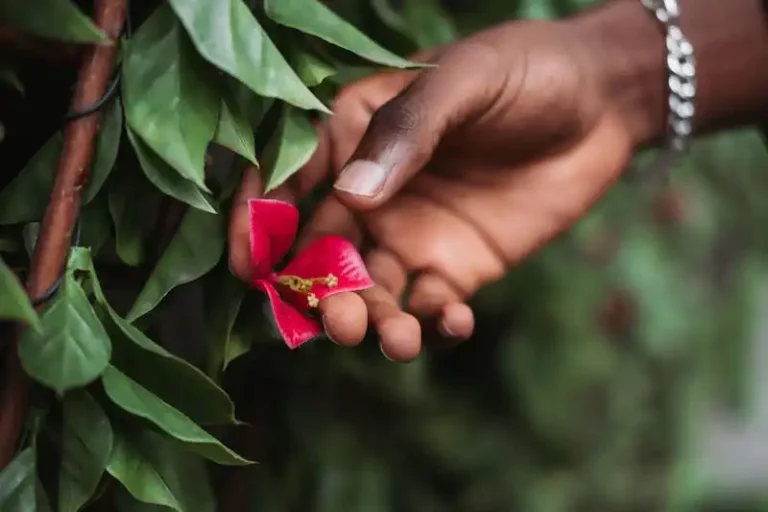The last thing you want to see on your hard-to-care-for indoor orchids (Orchidaceae) are roaches, yet these pests may make your plant their food source. You have a few options to keep cockroaches and other pests away from your orchids in your home or garden. The easiest steps are to remove any decaying organic matter and move the plants to a less-accessible area. Cockroaches are pesky and hard-to-remove pests, so prevention goes a long way to protecting your orchids from any sort of infestation. You can do that with several natural deterrents that cockroaches don’t like including garlic and lemon.
Cockroaches are a somewhat common concern with orchids, so if you see any signs of them, it’s important to take action. Look for very small bite marks on the leaves of your plant, often much smaller than those caused by other pests. You may also see droppings and exoskeletons in the soil, since they molt often. It’s not common to see an actual roach chomping away at a plant in the middle of the day since they are nocturnal, but they can be aggressive munchers that go after the flowers and root system. While orchids are typically more resistant to pest damage than many people think, you still need to be careful in the treatment of cockroaches and avoid the use of pesticides that could damage the plant itself.
How to rid your orchid of cockroaches

If you’ve seen the signs of cockroaches on your orchids already, take steps to make the area far less desirable for them. Most often, these pests are just on the lookout for a food source, and when you make it harder for them to get to your orchids, they may move on to something else. Therefore, a good starting point is to relocate the plants. Place them up on countertops or at least off the ground on a stand that elevates them a foot or more. That makes it harder for cockroaches to access the plant and smell its presence. Next, you’ll want to remove any decaying organic material from the plant’s pot. This attracts the pests and makes it more likely that they will want to move into your home.
However, the only real way to get rid of cockroaches on your orchid is to remove them completely from your home. You can do this through several methods, though larger infestations warrant the use of an exterminator. If you plan to deal with them yourself, avoid the use of any chemical-based treatments including pesticides that could damage the health of the orchid. A good option could be to use a roach baiting station, which you can purchase at most home improvement stores. In some areas, roaches are persistent, which means you shouldn’t stop with just getting rid of them.
Preventing cockroaches from harming your orchids

Once you’ve rid your plant of roaches, using a few prevention methods can help keep them from invading your orchids in the future. There are a few scents that can help to ward off the invading pests, including lemon. Place a lemon wedge or two at the base of the plant and replace it daily to keep the scent strong. You can also use a high-quality garlic powder, though you want to be sure it’s fresh enough to have a pungent scent. Sprinkle a generous amount on the growing medium in the orchid plant’s pot. You’ll need to do this a few times a week for routine protection.
Another option is to use a mixture of a few drops of an organic and high-quality tea tree oil. Don’t apply this directly to the plant without diluting it, but instead add a few drops to a spray bottle that’s filled with water and spritz it on the leaves. If you have room to do so, consider some companion planting to help reduce the risk of a cockroach infestation. This is also an excellent option for those growing orchids outdoors, since you’ll likely have more room for growing. Several plants are natural repellents to cockroaches including catnip, rosemary, and mint. Growing these alongside your orchids without crowding them too much can help create a strong scent that works to protect the plants.



